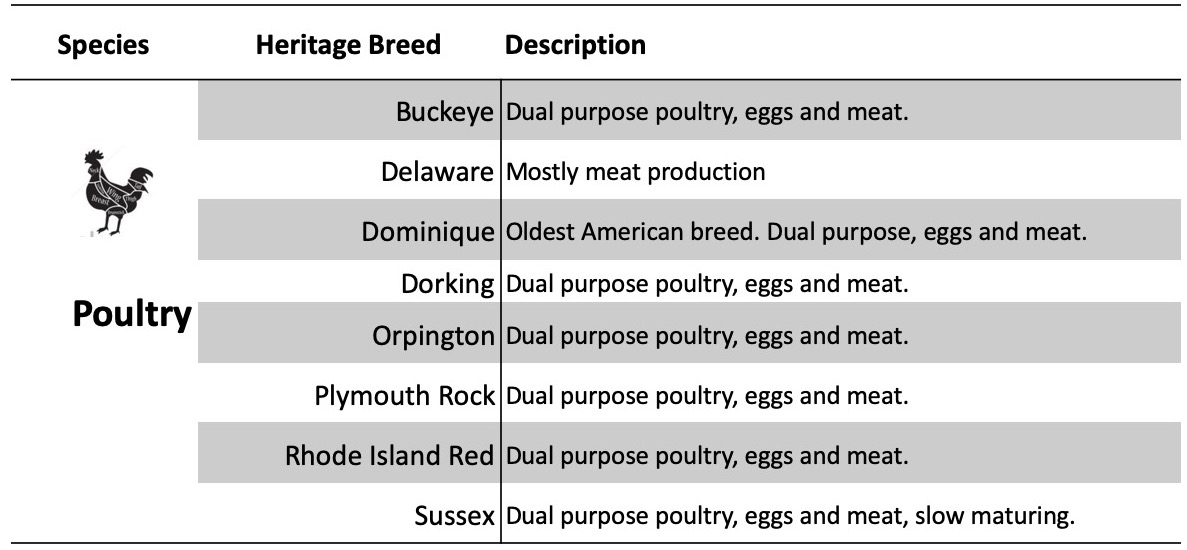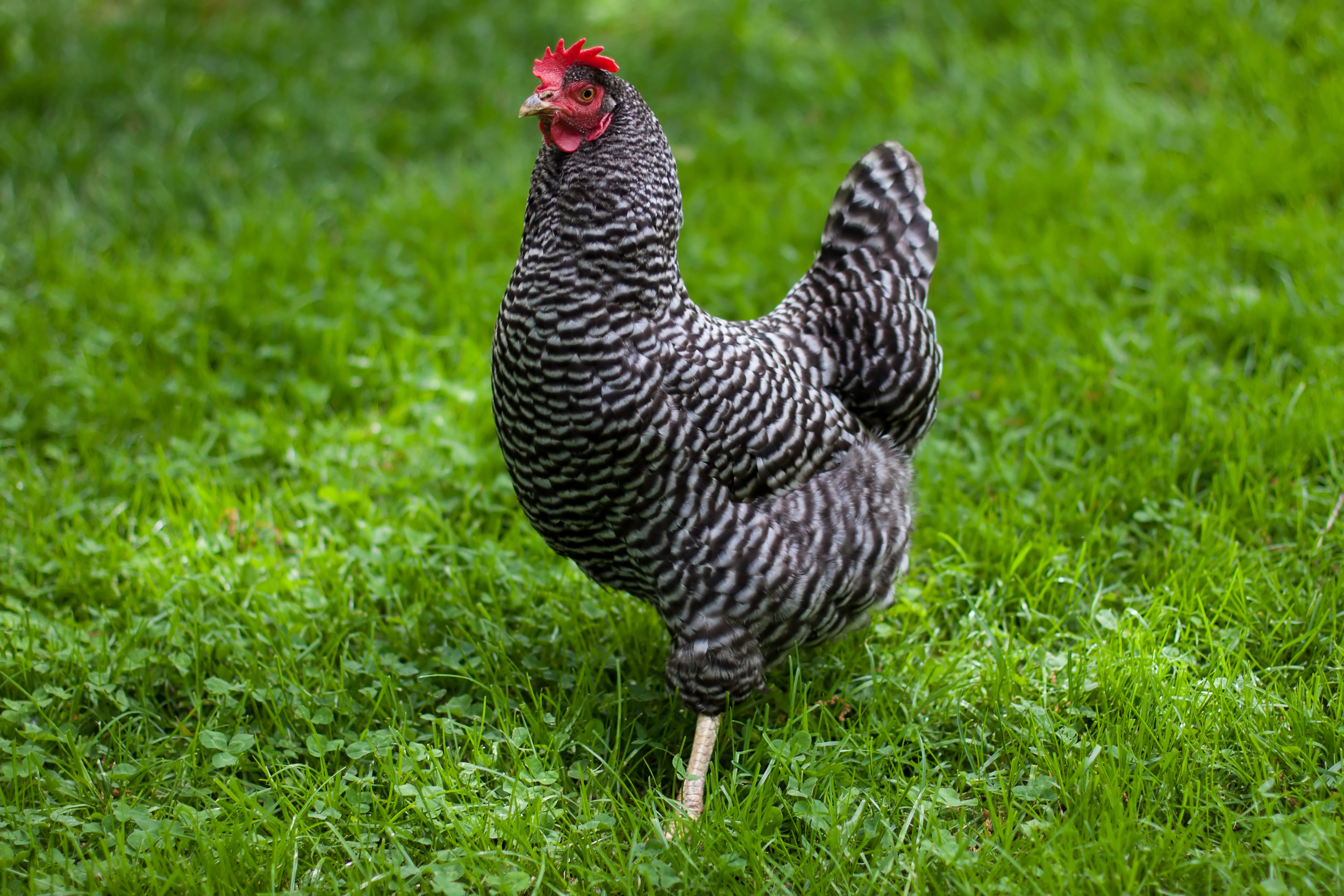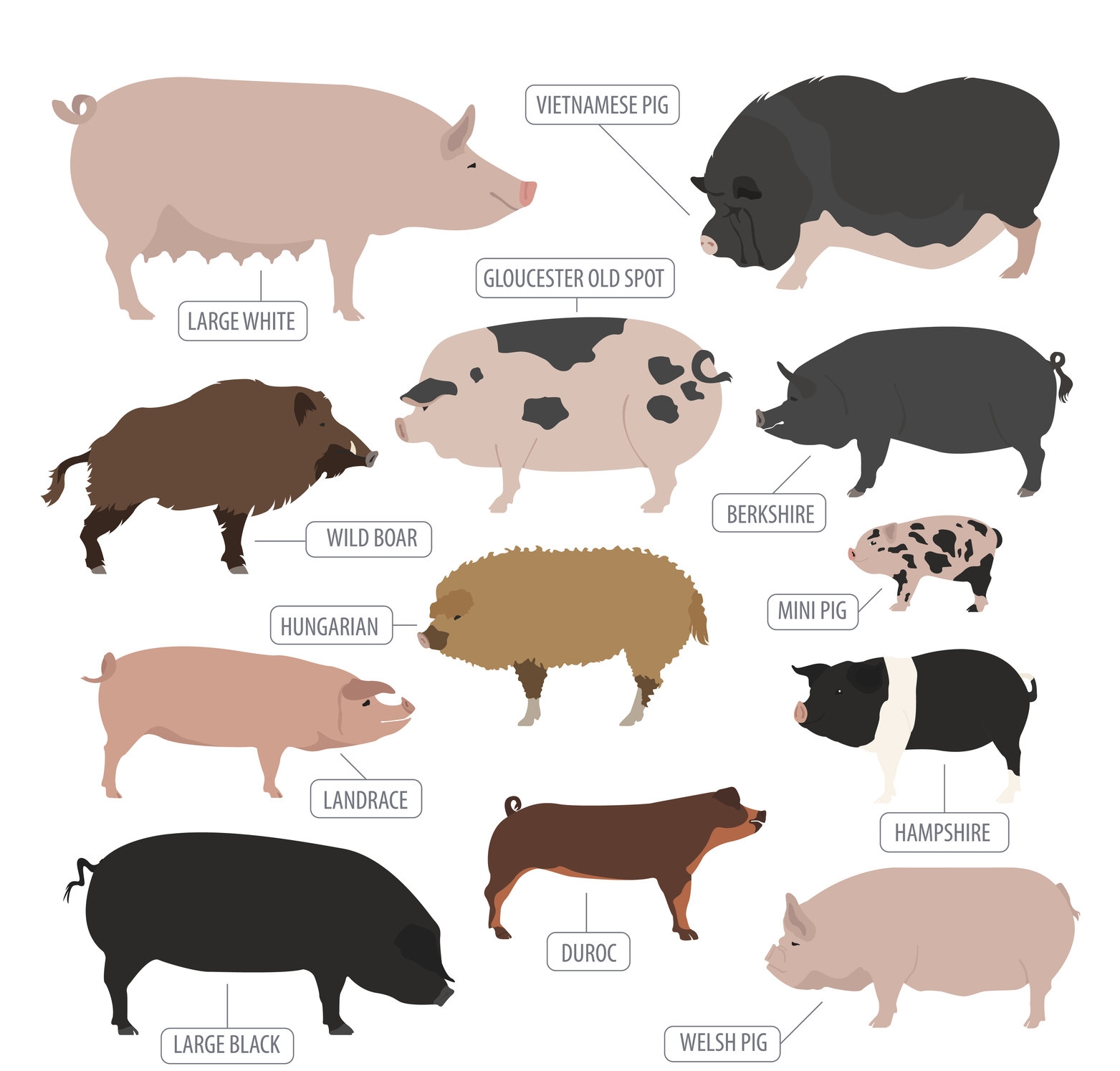About Organics and Heritage Breeds
Meat and Poultry Labeling
Certified Organic
Livestock must be raised on a “certified organic” farm or ranch according to United States Department of Agriculture (USDA) standards and fed only certified organic feed.
Naturally Raised
Animals are raised without growth hormones or antibiotics, and never fed animal by-products
No Antibiotics
Animals never receive antibiotics
No Hormones
Livestock never received growth hormones (Federal law prohibits the use of hormones in pork, lamb and poultry).
Grass Fed Meats
According to the USDA, beef, bison, lamb and goats can be labeled as grass fed if they forage on a diet of grass, legumes, and grain crops in their vegetative, ore-grain state. They must be allowed pasture to roam.
Free Range
The USDA designates that free range poultry be allowed access to the outdoors as alternatives to battery cages and barn floors but there is no requirement that they be given access to pasture. Free-range chicken eggs, however, have no legal definition in the United States. There is no legal standard for free range meats.
Cage Free
Cage free usually refers to egg production and means that the animals have not been penned in battery cages but are allowed access to move around whether either on a barn floor or outdoors.
Most animals raised for food in the United States are allowed to be administered antibiotics to maintain their health, and except for veal, are allowed to be given growth hormones to promote weight gain. Although the normal diet for cattle and sheep is grass-based, the addition of corn and other grains helps them to quickly gain weight. Grain-based diets pose health risks to ruminant animals but it does help them to rapidly gain weight. In recent years alternative farming methods, traditional processes that predate the high-production farming models in use today, have seen a resurgence because they allow animals access to the outdoors, and the ability to graze on a natural diet of grass. Alternative or sustainable farming methods include organic and grass-fed methods.
Heritage Breeds
Heritage breeds are distinct livestock that can be traced to the period before industrial farming and are considered endangered. Heritage livestock are generally heartier breeds that mature more slowly and are raised more naturally. Wagyu beef, from Kobe, Japan, and Berkshire pork are two examples. However, the term “heritage” does not necessarily mean they are pastured using humane farming methods, or that their meat is superior tasting. Heritage breeds help keep diversity within livestock species and help maintain the earth’s bio-diversity.
Chianini
Waygu
Texas Longhorn
Highland
Rhode Island Red
Plymouth Rock Chicken
Some trade groups or meat packers have established their own private label meat grading programs as a marketing tool to differentiate their products from other meat processors. The characteristics go beyond the requirements for official USDA grades. Some programs require USDA approval while others do not, and include among many others, programs for certified beef, grass-fed cattle, and free-range veal. These products should be evaluated on their quality, yield, and consistency in relation to the needs of each foodservice operation.















